On October 6…
“While a small number of old, abandoned chemical munitions have been discovered, Iraq Survey Group judges that Iraq unilaterally destroyed its undeclared chemical weapons stockpile in 1991. There are no credible indications that Baghdad resumed production of chemical munitions thereafter.”
~Charles Duelfer
Special Advisor Report on
Iraq’s Weapons of Mass Destruction
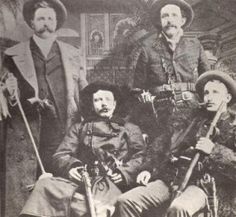
1866 – The Reno gang carried out the first robbery of a moving train in the U.S., making off with over $10,000 from an Ohio & Mississippi train in Jackson County, Indiana.
The gang boarded an eastbound train wearing masks and toting guns. After emptying one safe and tossing the other out the window, the robbers jumped off the train and made an easy getaway.
Prior to this innovation in crime, holdups had taken place only on trains sitting at stations or freight yards.
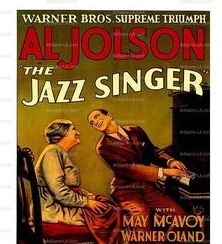
1927 – The Jazz Singer, starring Al Jolson, premiered in New York City.
The first, full-length “talking picture” actually didn’t contain much dialogue. There were only 291 spoken words in the landmark film. In total, the movie contained barely two minutes worth of synchronized talking, much or all of it improvised.
The rest of the dialogue was presented through caption cards.
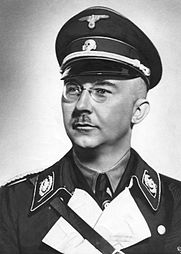
1943 – Two days after discussing his thoughts and plans for the “Final Solution” with German officers, Reichsführer-SS Heinrich Himmler – in a speech in the town hall of Posen (in German Nazi-occupied Poland) – revealed to leading officials of the Nazi party (“this most secret circle”) his thoughts on the Jewish question, and his determination to complete his quest to wipe every Jew in Europe off the map.
Read the words in italics slowly and let them sink in. For the first time, a leader of the Nazi regime openly admitted his reprehensible plan. These same officials would later claim they were unaware of the atrocities committed on behalf of the “master race”.
“I ask of you that that which I say to you in this circle be really only heard and not ever discussed. We were faced with the question: what about the women and children? – I decided to find a clear solution to this problem too. I did not consider myself justified to exterminate the men – in other words, to kill them or have them killed and allow the avengers of our sons and grandsons in the form of their children to grow up.
The difficult decision had to be made to have this people disappear from the earth. For the organization which had to execute this task, it was the most difficult which we had ever had.
I felt obliged to you, as the most superior dignitary, as the most superior dignitary of the party, this political order, this political instrument of the Führer, to also speak about this question quite openly and to say how it has been.
The Jewish question in the countries that we occupy will be solved by the end of this year. Only remainders of odd Jews that managed to find hiding places will be left over.”

1943 – Thirteen civilians were burnt alive by a paramilitary group in Crete.
Two days earlier, a group of partisans had clashed with and eliminated a German detachment near their hideout near Mount Tsilivdikas.
After the discovery of the dead Germans, Friedrich (Fritz) Schubert of the Nazi Wehrmacht and his men were sent to the region with an order for punitive operations. They surrounded the village of Kali Sykia and gathered everyone for questioning.
Only women and children were still at the village, as the men had fled to the mountains for fear of reprisals. A few houses were set ablaze and the women were beaten and threatened with death. Despite these threats, none of the women gave any information about the whereabouts of the village men.
Outraged by their defiance, Schubert and his men dragged several women houses, locked them in and set the houses on fire, burning the women alive.
The murders, while by no means the most numerous carried out by occupation forces in Crete, were unique in that they almost exclusively targeted women. Twelve women were burned in total. One of the women was eight months pregnant. An elderly man who could not leave his house was also burned in it.
The only person to be brought to trial for the killings of Kali Sykia was Schubert, but that massacre was not the only charge against him. He was found guilty of 271 murders and several other crimes including arson, rapes and thefts.
He received the death penalty 27 times and several thousand years of imprisonment.
He was executed by firing squad on October 22, 1947.
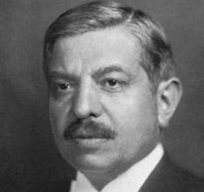
1945 – Former French premier and Vichy collaborator Pierre Laval tried to kill himself on the day he was to be executed for treason.
Laval swallowed cyanide just before he was scheduled to be shot by firing squad. A physician saved his life – just in time for Laval to be executed a little less than two weeks later.

1945 – Dr. Leonardo Conti, Reich Health Leader and the man attributed with the killing of a large number of concentration camp prisoners who were of “unsound mind,” hanged himself in his cell in Nuremberg Prison.
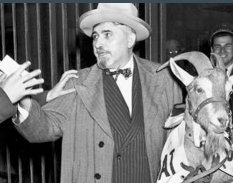
1945 – Billy Goat Tavern owner Billy Sianis was asked to leave World Series game 4 against the Detroit Tigers at the Cubs’ home ballpark of Wrigley Field because his pet goat’s odor was bothering other fans.
He was outraged and declared, “Them Cubs, they ain’t gonna win no more,” which has been interpreted to mean that there would never be another World Series game won at Wrigley Field.
He was right … until 2016.
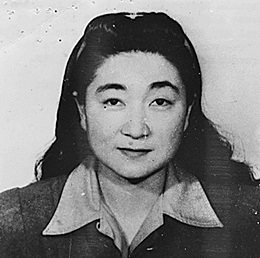
1949 – American-born Iva Toguri D’Aquino, convicted as Japanese wartime broadcaster Tokyo Rose, was sentenced to 10 years in prison.
She was sent to the Federal Reformatory for Women at Alderson, West Virginia. She was paroled after serving six years and two months.
Years later, governmental investigators pieced together the history of irregularities with the indictment, trial, and conviction, including confessions from key witnesses who had perjured themselves in their testimonies.
Toguri received a pardon in 1977 from President Gerald Ford.

1956 – Elvis Presley released Love Me Tender / Any Way You Want Me.

1961 – President John F. Kennedy, speaking on civil defense, advised American families to build bomb shelters to protect them from atomic fallout in the event of a nuclear exchange with the Soviet Union.
Kennedy also assured the public that the U.S. civil defense program would soon begin providing such protection for every American.
Keep Safe Factoid: And in elementary schools across America, we practiced air raid drills and were encouraged to practice protecting ourselves from a nuclear attack by crouching underneath our desks!
Yeah, that would have kept us safe.
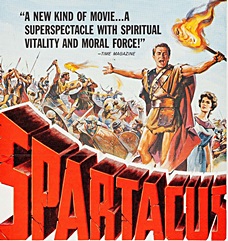
1960 – Spartacus premiered at the DeMille Theatre in New York City.
Inspired by the life story of Spartacus, the leader of a slave revolt in antiquity, and the events of the Third Servile War, the film starred Kirk Douglas in the title role, Laurence Olivier, Peter Ustinov (who won an Academy Award for Best Supporting Actor), and Jean Simmons.
Screenwriter Dalton Trumbo was blacklisted at the time as one of the Hollywood Ten. Douglas publicly announced that Trumbo was the screenwriter (an incredible act of courage).
President-elect John F. Kennedy crossed American Legion picket lines to view the film, helping to end blacklisting
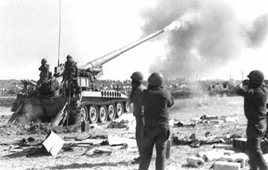
1973 – Hoping to win back territory lost to Israel during the third Arab-Israeli war, Egyptian and Syrian forces launched a coordinated attack against Israel on Yom Kippur, the holiest day in the Jewish calendar.
Taking the Israeli Defense Forces by surprise, Egyptian troops swept deep into the Sinai Peninsula, while Syria struggled to throw occupying Israeli troops out of the Golan Heights.
The surprise attack threw the Middle East into turmoil and threatened to bring the United States and the Soviet Union into direct conflict for the first time since the Cuban Missile Crisis in 1962.
Though actual combat did not break out between the two nations, the events surrounding the Yom Kippur War seriously damaged U.S.-Soviet relations and all but destroyed President Richard Nixon’s much publicized policy of detente.
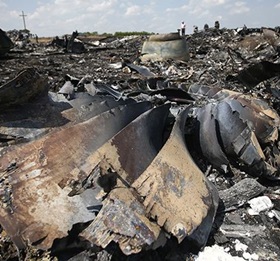
1976 – Cubana Flight 455 crashed into the Atlantic Ocean after two bombs, placed by terrorists with connections to the CIA, exploded onboard shortly after taking off from Bridgetown, Barbados.
All 73 people on-board were killed. CIA documents released in 2005 indicate that the agency “had concrete advance intelligence, as early as June 1976, on plans by Cuban exile terrorist groups to bomb a Cubana airliner.”
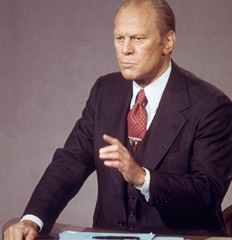
1976 – During a presidential debate against challenger Jimmy Carter, President Gerald Ford was asked by Max Frankel, Sunday editor of The New York Times, about American foreign policy in relation to the Soviet Union in Eastern Europe.
Ford talked briefly about the Helsinki Accords and then dropped this bombshell:
“There is no Soviet domination in Eastern Europe, and there will never be under a Ford administration.”
There was one small problem with this statement – it was undeniably false. Ford continued to defend his statement even after being challenged by Frankel, putting the final nail in the coffin of his presidential campaign.
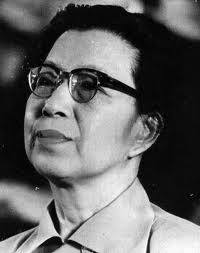
1976 –New Premier Hua Guofeng ordered the arrest of the “Gang of Four” – which included Jiang Qing, the final wife of Mao Zedong – and ended the Cultural Revolution in the People’s Republic of China.
At their 1981 trial, they were charged with the usurpation of state power and party leadership, and the persecution of some 750,000 people (34,375 of whom died during the period 1966-76).
Jiang Qing was extremely defiant throughout the trial, protesting loudly and claiming she had obeyed the orders of Chairman Mao Zedong at all times. She and her fellow defendants were sentenced to lengthy prison sentences.
All have since died, with Jiang Qing committing suicide in 1991.
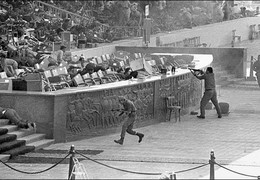
1981 – Islamic extremists assassinated Anwar Sadat, the president of Egypt, as he reviewed troops on the anniversary of the Yom Kippur War.
Led by Khaled el Islambouli, a lieutenant in the Egyptian army with connections to the terrorist group Takfir Wal-Hajira, the terrorists, all wearing army uniforms, stopped in front of the reviewing stand and fired shots and threw grenades into a crowd of Egyptian government officials.
Sadat, who was shot four times, died two hours later. Ten other people also died in the attack.

1989 – Actress Bette Davis died of cancer at the age of 81.
She earned 10 Academy Award nominations for acting – Dark Victory, The Letter, The Little Foxes, Now Voyager, Mrs. Skeffington, All About Eve, The Star, Whatever Happened To Baby Jane? – with the other two resulting in Academy Awards for Best Actress – Dangerous and Jezebel.

1991 – Actress Elizabeth Taylor married construction worker Larry Fortensky in a ceremony held at singer Michael Jackson’s Neverland Ranch in California.
It was her eighth marriage and Fortensky was her seventh husband (Richard Burton married her twice).
Taylor and Fortensky divorced in 1996.

1991 – University of Oklahoma professor Anita F. Hill, former aide to U.S. Supreme Court nominee Clarence Thomas, testified before a Senate committee that Thomas sexually harassed her, and the allegations nearly undid Thomas’ nomination to the High Court.
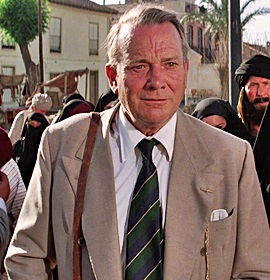
1992 – Actor Denholm Elliott died of AIDS-related tuberculosis at the age of 70.
He was nominated for the Academy Award for Best Supporting Actor for his performance in A Room With A View, but his more than 100 film credits also included Raiders of the Lost Ark, Indiana Jones and the Last Crusade, Trading Places, and Alfie.
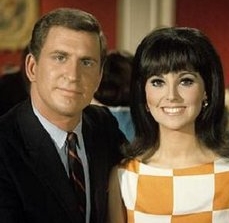
1996 – Actor Ted Bessell, best remembered for role was as Donald Hollinger in That Girl, died of an aortic aneurysm at the age of 61.
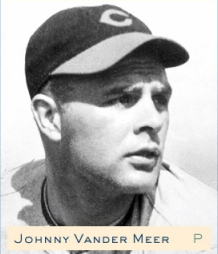
1997 – Johnny Vander Meer (an average baseball pitcher but one who is forever remembered as the only man in Major League History to throw two consecutive no-hitters) died of an abdominal aneurysm at the age of 82.
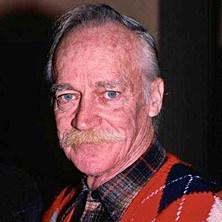
2000 – Actor Richard Farnsworth died at the age of 80.
After a long illness with metastatic prostate cancer that had left him partially paralyzed and unable to walk, Farnsworth committed suicide by shooting himself.
Farnsworth spent 40 years as a stuntman and double before winning his first speaking role at the age of 57.
He was nominated for a Best Supporting Actor Academy Award for his performance in Comes A Horseman, and earned a Best Actor nomination for Straight Story.
He also appeared in The Grey Fox, The Natural and Anne of Green Gables.

2001 – Cal Ripken played in his final game, bringing to an end a 21-year career (all of them with the Baltimore Orioles) that saw him accumulate 3,184 hits, 431 home runs, and 1,695 runs batted in.
Ripken is best known for holding the record for most consecutive games played … an astounding 2,632.
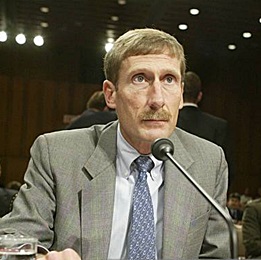
2004 – The top U.S. arms inspector in Iraq, Charles Duelfer, reported finding no evidence Saddam Hussein’s regime had produced weapons of mass destruction after 1991.
Duelfer’s report concluded that Iraq’s nuclear capability, far from being reconstituted as the U.S. had insisted before the war, was “decaying rather than being preserved” and would have taken years to rebuild.
Despite Duelfer’s findings, President George W. Bush continued to defend the 2003 invasion of Iraq. He stated on Oct. 7 that Duelfer’s report proved that Hussein “retained the knowledge, the materials, the means and the intent to produce weapons of mass destruction.”
Compiled by Ray Lemire ©2019 RayLemire.com / Streamingoldies.com. All Rights Reserved.